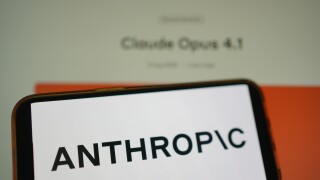Firm
Cassandra Hill of Mishcon de Reya explains why the firm remains committed to diversity targets and why others should follow suit
Beatriz Lima joins us for our ‘Five minutes with’ series to discuss a recent victory at the Unified Patent Court and the challenges of establishing your own firm
Former White & Case partner joins HSF Kramer’s New York office to head up US technology transactions practice and strengthen firm’s IP and tech capabilities
Molly Kocialski, who has joined Holland & Hart after nearly a decade as a USPTO regional director, discusses career shifts, resilience, and overcoming casual sexism
Sponsored
Sponsored
-
Sponsored by Bird & BirdIn the first English court decision to consider the issue of AI inventorship, the High Court has held that an AI system cannot be considered an inventor under the Patent Act 1977.
-
Sponsored by Tilleke & GibbinsA decade ago, intellectual property lawsuits were rarely handled by Vietnamese courts. They have become more common in recent years, but almost always with overseas IP owners in the plaintiff role, charging local Vietnamese entities with infringement, piracy, or counterfeiting.
-
Sponsored by ABE & PartnersIn the past, Japanese patent litigations were notorious for being slow, having narrow claim interpretation, low damages awards, poor evidence collection procedures, and having a low winning rate. Cases and Materials on Patent Law, Second Edition says, "No countries' patent system has received more criticism than that of Japan. Among the chief complaints is that the courts award patent claims with an extremely narrow scope, and that the Doctrine of Equivalents does not exist at all." Global Patent Litigation: How and Where to Win, Third Edition, edited by Finnegan says that the winning rate of patentees from 2006 to 2016 was 24% in Japan, ranked second from the bottom out of the 10 countries. However, Japanese patent litigation has been reformed and is now transformed in order to be more convenient for patentees than ever before.
-
Sponsored by Tilleke & GibbinsOn August 28 2020, the Ministry of Commerce (MOC) announced that the "soft-opening period" to refile trademarks under the country's new Trademark Act would begin on October 1 2020. This period, which is open to holders of trademarks recorded under Myanmar's old system and to trademark owners who can prove prior use of their trademarks in the country, is expected to run for six months, though no closing date was stipulated in the MOC announcement. The date of the eventual "grand opening" of the Intellectual Property Department (IPD) will be the filing date for all applications submitted during the soft-opening period.
-
Sponsored by OLIVARESIt is important not to forget that the Civil Code states that debtors respond to the fulfilment of their obligations with their assets, except for all those assets considered by law as inalienable or which cannot be seized.
-
Sponsored by AJ ParkIn New Zealand, trademark non-use revocation actions can be defended by showing there are special circumstances justifying the non-use (Trade Marks Act 2002 (NZ), Section 67, 66(2)). This article explores the framework for assessing special circumstances in New Zealand and discusses recent case law that deals with this issue.





















